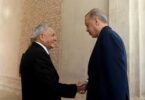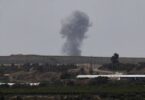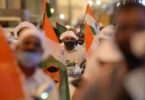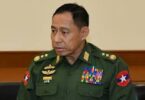Monitoring Desk
LONDON: The British government had a plan to make Russia an “associate” member of the NATO alliance before Vladimir Putin took over as president in 1999, British archives made public revealed Tuesday.
The secret Ministry of Defense documents from 25 years ago revealed the plan, which was based on the cooperative nature of Boris Yeltsin, Putin’s late predecessor.
The note outlined an opportunity to change the relationship with Russia after the end of the Cold War.
“A possible solution would be to create a new category of associate member of Nato,” then-Defense Secretary Malcolm Rifkind said in his proposal.
“Such a status could not involve article V (collective defense) guarantees, membership of the IMS (Internal Military Staff) or Russian vetoes and would not therefore change the essence of Nato,” he wrote.
“It would, however, give Russia a formal status within Nato, allow it to attend, as of right, ministerial and other meetings and encourage a gradual convergence and harmonisation of policy, doctrine and practice.”
Minutes from a Cabinet summit however also show that Ken Clarke, then-chancellor of the exchequer, “was cautious about expansion.”
Rifkind this week said the initiative was “pre-Putin.”
He said: “We had Gorbachev and Yeltsin who were very cooperative and they were genuinely wanting to become closer to the west. Russia supported action against Saddam Hussein in the first Gulf war.
“They were unhappy about the enlargement of NATO, but didn’t make as much of a fuss about it as you’d expect … So I was trying to find a way to say could we support close cooperation with Russia, hence my suggestion of it becoming an associate member.”
The plans never found enough support to materialize in serious talks over the issue, but Russia was allowed to join in some NATO meetings to further cooperation with the country. But in 2014, Russia’s annexation of Crimea ended all its military cooperation and privileges with the alliance.
Its diplomacy with the Western world further deteriorated with the March 2018 suspected poisonings of former Russian spy Sergei Skripal and his daughter Yulia in Salisbury, England.
More than a hundred Russian diplomats were expelled from Western countries over the incidents. (AA)






